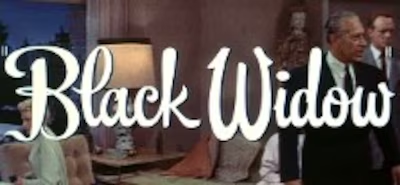Dorothy Spencer
About
Biography
Biography
Dorothy Spencer was a distinguished artisan who made her mark in one of the relatively few behind-the-scenes fields which Hollywood, in its historically typical yet weird gender breakdown, allowed women to toil--editing. Although she worked for several different studios during the late 1930s and early 40s, Spencer started her career at Fox Studios and, once settling in at the reconsolidated 20th Century-Fox Studios in the 40s, wracked up approximately 50 credits for the company through the late 60s. She thus made her mark on that studio's product in a way comparable to composer Alfred Newman and other veteran male stalwarts whose careers have received more attention and acclaim. Spencer also became a trusted favorite of a number of talented directors over the years, earning multiple credits with such filmmakers as Edward Dmytryk, John Ford, Tay Garnett, Henry Hathaway, Anatole Litvak, Jean Negulesco and Mark Robson.
Spencer began in the industry in the 1920s, and at the venerable age of 20, earned her first credits on the modest Fox efforts "Married in Hollywood" and "Nix on Dames" (both 1929). Most of her early credits are in lighter fare, in contrast to the epics, action pictures and weighty dramas which came to dominate her credits once she was better established. Beginning in the mid-30s, Spencer earned credits at Paramount and Universal, but until 1943 worked primarily on independently produced features released through United Artists. It was through this distributor that Spencer enjoyed her first ongoing collaboration with a noteworthy Hollywood craftsman, Tay Garnett. Although several of their joint efforts ("Stand-In" 1937, "Eternally Yours" 1939) were comedies a bit different from the rugged pictures one associates with Garnett, these films, and the more typical "Trade Winds" (1938) have the crisp narrative drive found in Garnett--and in Spencer's editing.
1939 was a breakthrough year for Spencer. She worked on the first of three films with John Ford (and veteran cutter Otho Lovering) on her most important film to date, the Oscar-winning "Stagecoach." Ford was famous for frustrating editors by shooting few takes and editing his work in-camera as he shot, such that editors had to piece together footage largely as he planned. Spencer and Lovering nonetheless deserved credit--and their Oscar nomination--for their brisk timing and ordering of shots. This was especially notable in the now-legendary chase across the flats, where Ford, Lovering and Spencer were unafraid to break the 180 degree rule of editing, and used subtle interplays of picture and sound to increase the scene's suspense.
Spencer rejoined Fox (20th Century-Fox since 1935) in 1943, where she would stay for the next quarter century, seeing the old studio system through its dying days and its major changes. (It's perversely fitting that her last film for Fox would be so determinedly old-fashioned in format yet so aggressively, trashily hip and trendy in content, "Valley of the Dolls" 1967). Having worked with Ernst Lubitsch on "To Be or Not to Be" (1942), she immediately reteamed with him for "Heaven Can Wait" (1943). A more typical collaboration, and Spencer's longest-ever, developed with the robustly craftsmanlike Henry Hathaway, including "Down to the Sea in Ships" (1949), "Fourteen Hours" (1951), "North to Alaska" (1960) and "Circus World" (1964). She worked in many genres, but did some of her most memorable work in epics and action films, including wartime intrigues like Elia Kazan's "Man on a Tightrope" (1953) and Litvak's "Decision Before Dawn" (1951, her second Oscar nomination), and exotic spectacles ("Demetrius and the Gladiators" 1954, and the infamous but technically proficient "Cleopatra" 1963, her third Oscar nod). More intimate films, such as Dmytryk's WWII character study "The Young Lions" (1958), or Fred Zinnemann's drug-addiction drama, "A Hatful of Rain" (1957) only highlight her versatility.
Having worked with former editor turned director Mark Robson at Fox on "From the Terrace" (1960) and "Von Ryan's Express" (1965), Spencer continued her last major collaboration after she parted company from Fox. Some of their independently produced efforts were small in scale ("Happy Birthday, Wanda June" 1971) but at least one film seemed, for better or worse, reminiscent of Hollywood days of yore. Having worked in the disaster genre before (Negulesco's "The Rains of Ranchipur" 1955), Spencer gave a last big display of her powers in Robson's narratively cliched but technically impressive hit, "Earthquake" (1974). Spencer received her fourth and final Oscar nomination for work which admirably highlighted the film's lavish special effects. She likewise did her polished best with her final credit, "The Concorde--Airport '79" (1979), and though the film as a whole was not worthy, it at least enabled Spencer to reach a personal landmark of 50 years as that unseen artist, the Hollywood editor.
Filmography
Editing (Feature Film)
Life Events
1929
Became an editor at Fox Studios; first film, "Married in Hollywood"
1935
Free-lanced; worked primarily on films distributed by United Artists; worked regularly with director Tay Garnett
1939
Received first of four Oscar nominations for editing the landmark John Ford Western, "Stagecoach"; nomination shared with Otho Lovering
1941
Earliest collaborations with director Henry Hathaway include "Sundown"
1943
Returned to Fox (now Twentieth Century-Fox), first films there, "Happy Land" and "Heaven Can Wait"
1951
Received second Oscar nomination for "Decision Before Dawn", directed by Anatole Litvak
1960
First of eight films with director Mark Robson, "From the Terrace"
1963
Edited the overblown "Cleopatra"; received third Academy Award nomination
1964
Last collaboration with director Henry Hathaway, "Circus World"
1967
Last films for Twentieth Century-Fox, "A Guide for the Married Man" and "Valley of the Dolls"
1974
Last of four Oscar nominations, "Earthquake", one of several Mark Robson-directed features produced by The Filmmakers Group
1979
Last feature credit, "The Concorde--Airport '79"
Videos
Trailer























